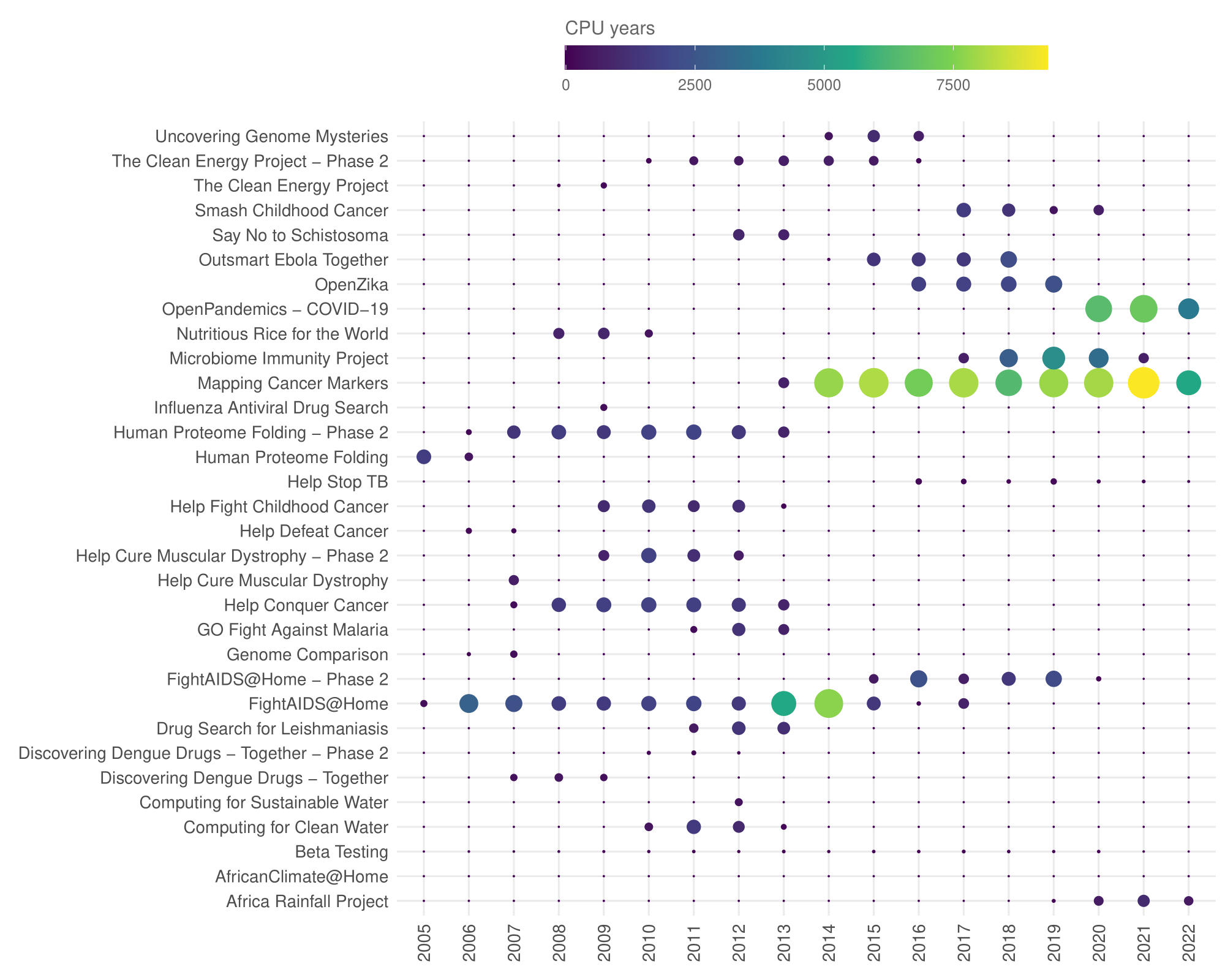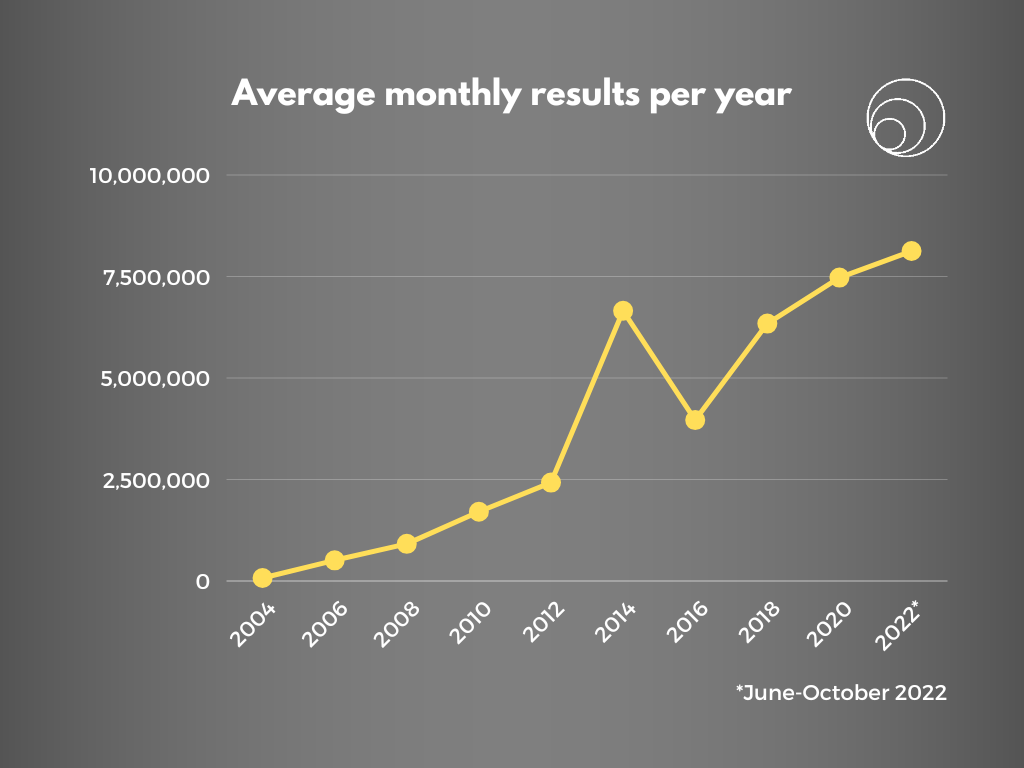Celebrating WCG’s achievements over the past 18 years.
World Community Grid was created and funded by a philanthropic initiative of IBM Corporate Social Responsibility from November 16 2004 until February 2022, to empower anyone with a computer, Android or Raspberry Pi device to contribute to research on health and sustainability. This high performance computing platform was freely available for open science/open data research that benefits humanity. Cumulatively, it expanded to 807,451 volunteers who powered it up by donating 7,619,667 devices. WCG scientific partners used the resulting 2,432,965 CPU years for searching for answers to the world’s biggest problems.

2,432,965 CPU years for world changing research generated 6,623,603,997 results across 32 projects.
We are grateful to IBM for their many years of financial and operational support. WCG continues to provide a platform for open-source and open-data research and helps reduce computational time to allow scientists to address the world’s most pressing questions at no cost to the researchers. Over the past year, the WCG has been transferred to the Krembil Research Institute, University Health Network (UHN), located in Toronto, Canada. The WCG is now managed by the Jurisica lab at UHN. As an academic group, we face a significant financial challenge in providing the same level of support to the global research community, still free of charge. One year may seem a long time for “WCG system migration”, but our small team had to transition from a research team that ran Mapping Cancer Markers on WCG to learning, building and configuring the WCG system on our servers, with our architecture and performance constraints (as the servers were not optimally configured for the WCG system).
While we continue identifying and resolving the critical bottlenecks, it is encouraging to see dedicated volunteers that continue to power the science as the research results on our four currently active projects continue to increase.

Plotting monthly average results returned per active project across the 18 years. In 2014, multiple research projects have finished, substantially increasing the average results per project.
While the transition to a new platform presented many technical and logistical challenges, the WCG is running again and continues to support applications that benefit humanity, and to do so at no cost to the researchers. While finalizing the system configuration, we are also looking for new challenges to address in medical and climate change research. All in all, there is a bright future for WCG thanks to the support of our friends and volunteers.
For any questions or discussions, please leave them in this thread.
WCG team at Krembil Research Institute